Oh my goodness, let me tell you about the Top 10 Dermatologist-Recommended Skincare Products for Every Skin Type! These products are absolutely phenomenal, and I’m so excited to share them with you!
Understanding Your Skin Type
Before we jump into the fantastic top 10 dermatologist-recommended skincare products, it’s crucial to understand your skin type. Knowing your skin type will help you choose the products that cater specifically to your unique needs. Let’s break down the four main skin types:
- Normal: If you have normal skin, you’re one of the lucky ones! Your skin is neither too dry nor too oily, boasting a balanced complexion with few to no blemishes. This skin type generally has a healthy glow and requires minimal maintenance.
- Dry: Dry skin is characterized by a lack of moisture, which often results in a tight, flaky, or itchy feeling. This skin type may be prone to redness, and you might notice fine lines and wrinkles more easily. Nourishing and hydrating products are essential for dry skin to help restore and maintain its moisture levels.
- Oily: Oily skin produces an excessive amount of sebum, leading to a shiny complexion and clogged pores. This skin type is more prone to acne and blackheads due to the excess oil production. People with oily skin should look for oil-free and non-comedogenic products that won’t clog pores and can help regulate oil production.
- Combination: Combination skin can be a bit trickier to handle, as it’s dry in some areas and oily in others. You might notice an oily T-zone (forehead, nose, and chin) and dry cheeks. This skin type requires a balance of products that can provide hydration to the dry areas without exacerbating oiliness in the T-zone.
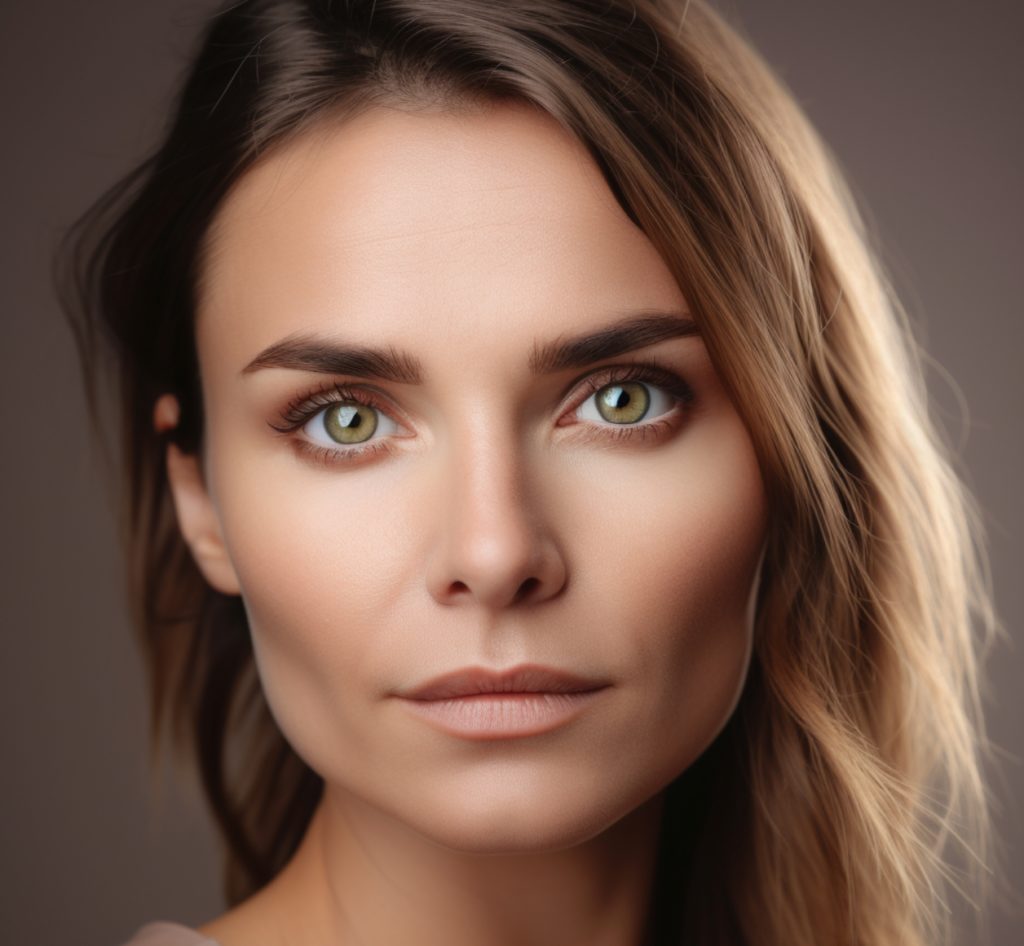
By understanding your skin type, you’ll be better equipped to choose the most suitable products from our top 10 dermatologist-recommended skincare list. Remember, the key to healthy, beautiful skin is finding the right products that address your specific concerns and needs. Happy skincare shopping!
Top 10 Dermatologist-Recommended Skincare Products: An Overview
1. Hydrating Serum: Quenching Thirsty Skin
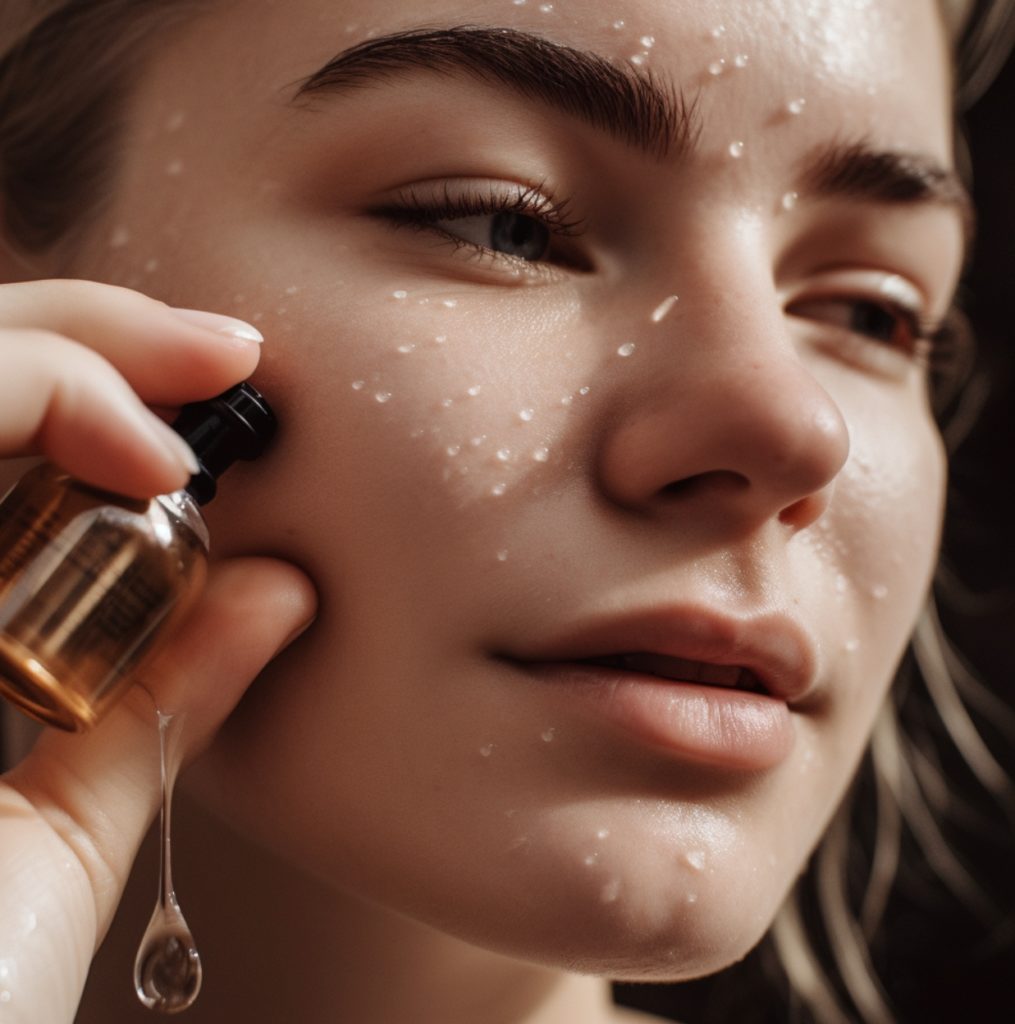
Hydrating serums are a game-changer for those with dry or sensitive skin. These lightweight, fast-absorbing formulas pack a punch with key ingredients like hyaluronic acid, glycerin, and essential vitamins. Hyaluronic acid, in particular, is a superstar ingredient that can hold up to 1000 times its weight in water, providing intense hydration and plumping up the skin. By incorporating a hydrating serum into your daily routine, you’ll enjoy a more supple and radiant complexion.
Hydrating Serum:
- Key ingredients: Hyaluronic acid, glycerin, vitamins
- Benefits: Provides intense hydration, plumps up the skin, and improves the appearance of fine lines and wrinkles.
- Expert advice: “A hydrating serum with hyaluronic acid is a must-have for anyone with dry or dehydrated skin. It’s like a drink of water for your skin,” says Dr. Ava Shamban, a board-certified dermatologist.
2. Clay Face Mask: Combat Oily Skin and Breakouts
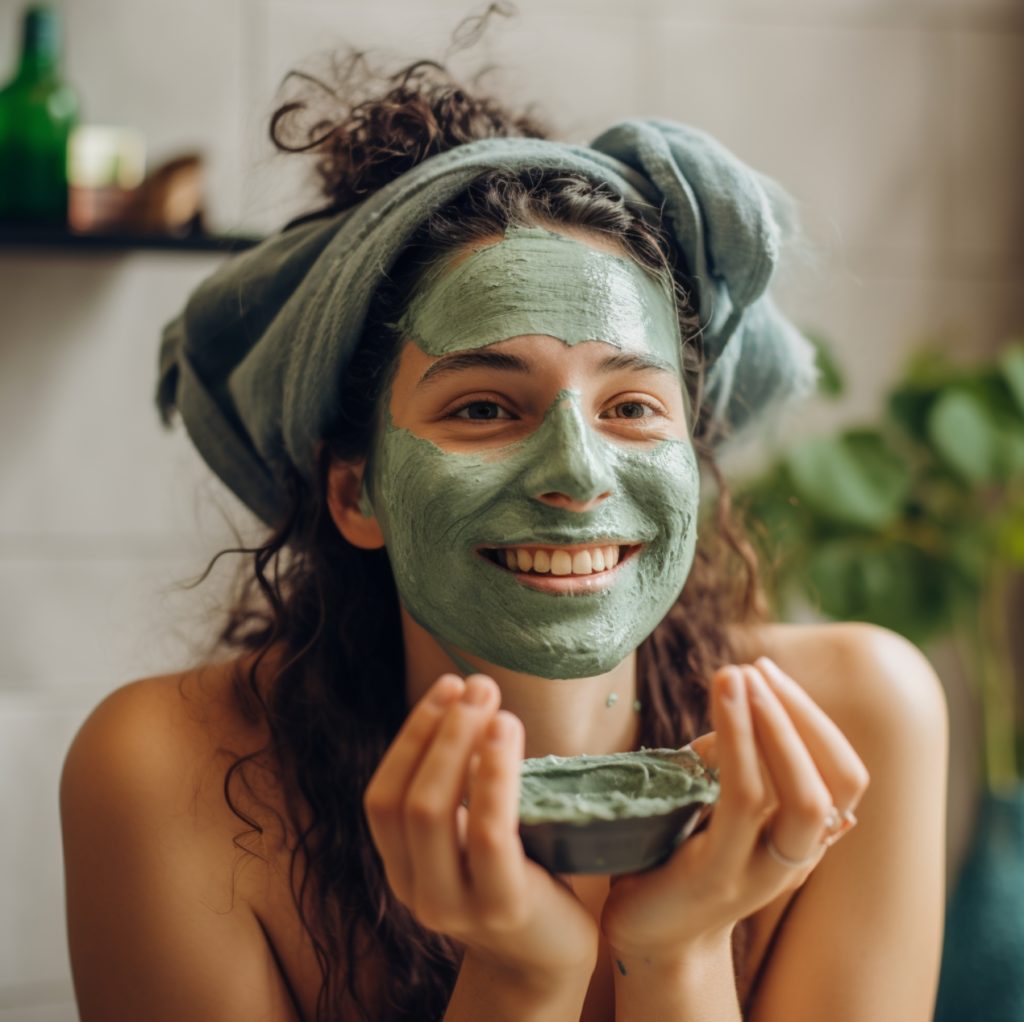
For those battling oily skin or acne, a clay face mask is your new best friend. Formulated with powerful ingredients like kaolin and bentonite, these masks effectively absorb excess oil and help unclog pores. Many clay masks also include a touch of salicylic acid, a renowned acne-fighting ingredient that gently exfoliates the skin, treats blemishes, and prevents future breakouts. Treat yourself to a weekly clay mask session and watch your skin transform.
Clay Face Mask:
- Key ingredients: Kaolin, bentonite, salicylic acid
- Benefits: Absorbs excess oil, unclogs pores, and helps prevent breakouts.
- Expert advice: “Clay masks are a great option for oily or acne-prone skin. They can help absorb excess oil and reduce the appearance of pores,” says esthetician Joanna Vargas.
3. Gentle Cleanser: A Must-Have for All Skin Types
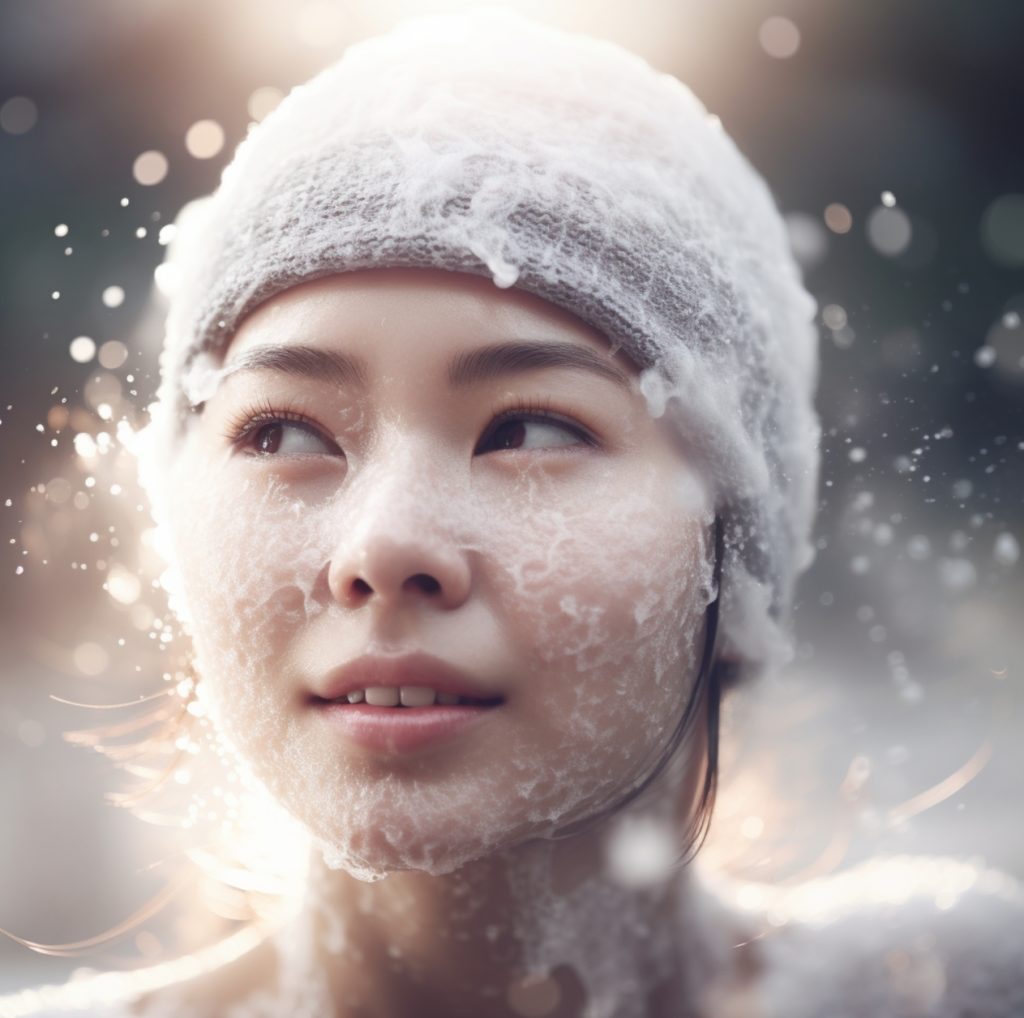
A reliable and effective gentle cleanser is the cornerstone of any skincare routine, regardless of your skin type. The perfect cleanser should remove dirt, makeup, and impurities without stripping the skin of its natural oils. Look for sulfate-free formulas infused with soothing ingredients like chamomile, aloe vera, and allantoin, which calm and protect the skin. Make sure to cleanse your face twice daily – once in the morning and once at night – to maintain a fresh, clean complexion.
Gentle Cleanser:
- Key ingredients: Chamomile, aloe vera, allantoin
- Benefits: Gently cleanses the skin, removes impurities without stripping natural oils, and soothes and protects the skin.
- Expert advice: “A gentle cleanser is essential for maintaining healthy skin. Look for one with soothing ingredients that won’t disrupt your skin’s natural barrier,” says Dr. Debra Jaliman, a board-certified dermatologist.
4. Retinol Cream: Turning Back the Clock
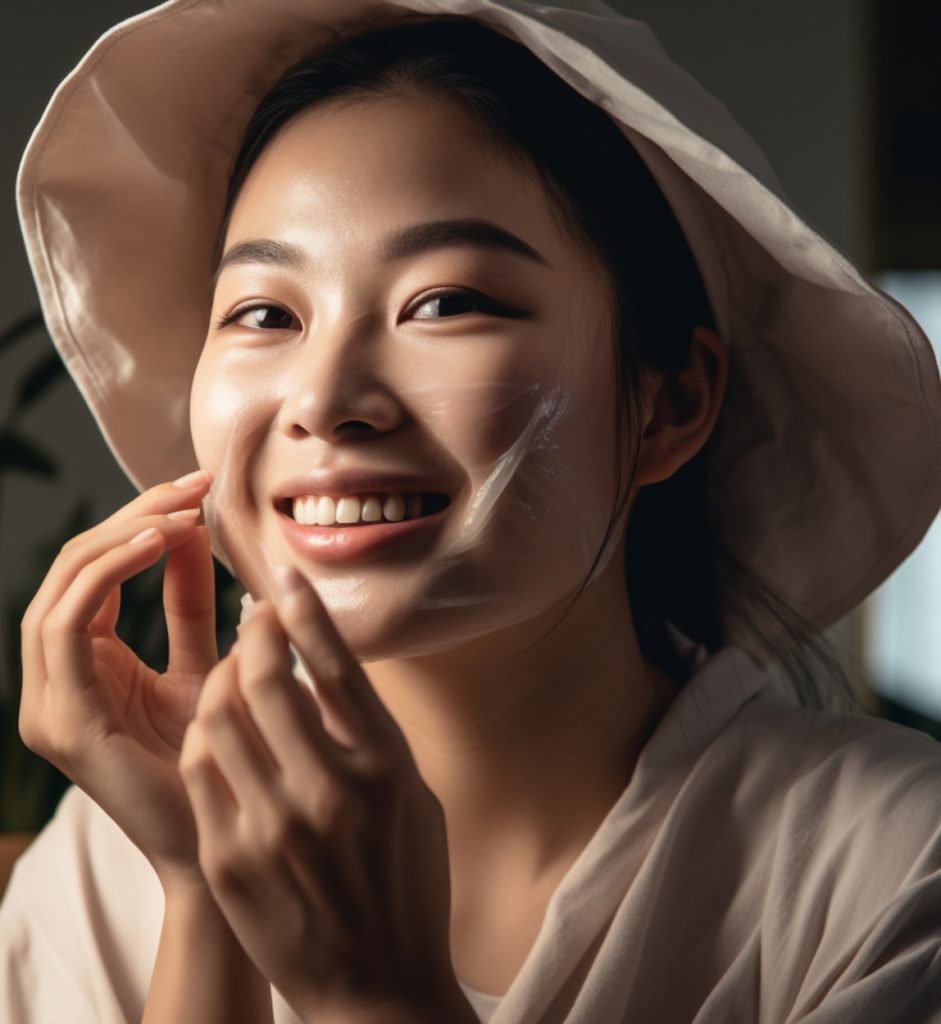
If you’re on a quest to combat signs of aging, a retinol cream should be at the top of your list. Retinol, a derivative of vitamin A, is widely known for its ability to reduce the appearance of fine lines and wrinkles while improving skin texture and elasticity. For best results, choose a retinol cream with a time-release system, which gradually releases retinol into the skin to minimize irritation. Don’t forget to combine retinol with a daily sunscreen, as retinol can make your skin more sensitive to the sun’s harmful rays.
Retinol Cream:
- Key ingredients: Retinol, vitamins
- Benefits: Reduces the appearance of fine lines and wrinkles, improves skin texture and elasticity, and promotes collagen production.
- Expert advice: “Retinol is a proven anti-aging ingredient that can improve the appearance of fine lines and wrinkles. Start with a low concentration and gradually work your way up to prevent irritation,” says Dr. Michelle Henry, a board-certified dermatologist.
5. Sunscreen: Your Skin’s Best Defense

Sunscreen is, without a doubt, the most crucial skincare product for every skin type. Not only does it protect your skin from the harmful effects of UVA and UVB rays, but it also prevents premature aging and reduces the risk of skin cancer. Choose a broad-spectrum sunscreen with at least SPF 30 and opt for physical sunscreens containing zinc oxide or titanium dioxide, which are less likely to cause irritation or breakouts. Remember, rain or shine, sunscreen is a non-negotiable part of your daily skincare routine.
Sunscreen:
- Key ingredients: Zinc oxide, titanium dioxide
- Benefits: Protects the skin from UVA and UVB rays, prevents premature aging, and reduces the risk of skin cancer.
- Expert advice: “Wearing sunscreen every day is the most important thing you can do for your skin. Look for a broad-spectrum formula with at least SPF 30 and reapply every two hours,” says Dr. Ranella Hirsch, a board-certified dermatologist.
6. Vitamin C Serum: Brighten and Protect

A powerful vitamin C serum is a must-have for a radiant, even-toned complexion. Vitamin C, a potent antioxidant, works wonders by brightening skin, improving texture, and fighting free radicals that cause premature aging. Look for a serum that combines vitamin C with other antioxidants like ferulic acid and vitamin E for enhanced stability and efficacy. Incorporate this wonder ingredient into your morning routine, and you’ll soon notice a more youthful, glowing appearance.
Vitamin C Serum:
- Key ingredients: Vitamin C, ferulic acid, vitamin E
- Benefits: Brightens the skin, improves skin texture, and fights free radicals that cause premature aging.
- Expert advice: “Vitamin C is a powerful antioxidant that can protect the skin from environmental damage. Look for a serum with a stable form of vitamin C for maximum efficacy,” says esthetician Renée Rouleau.
7. Exfoliating Toner: Reveal Smoother, Brighter Skin
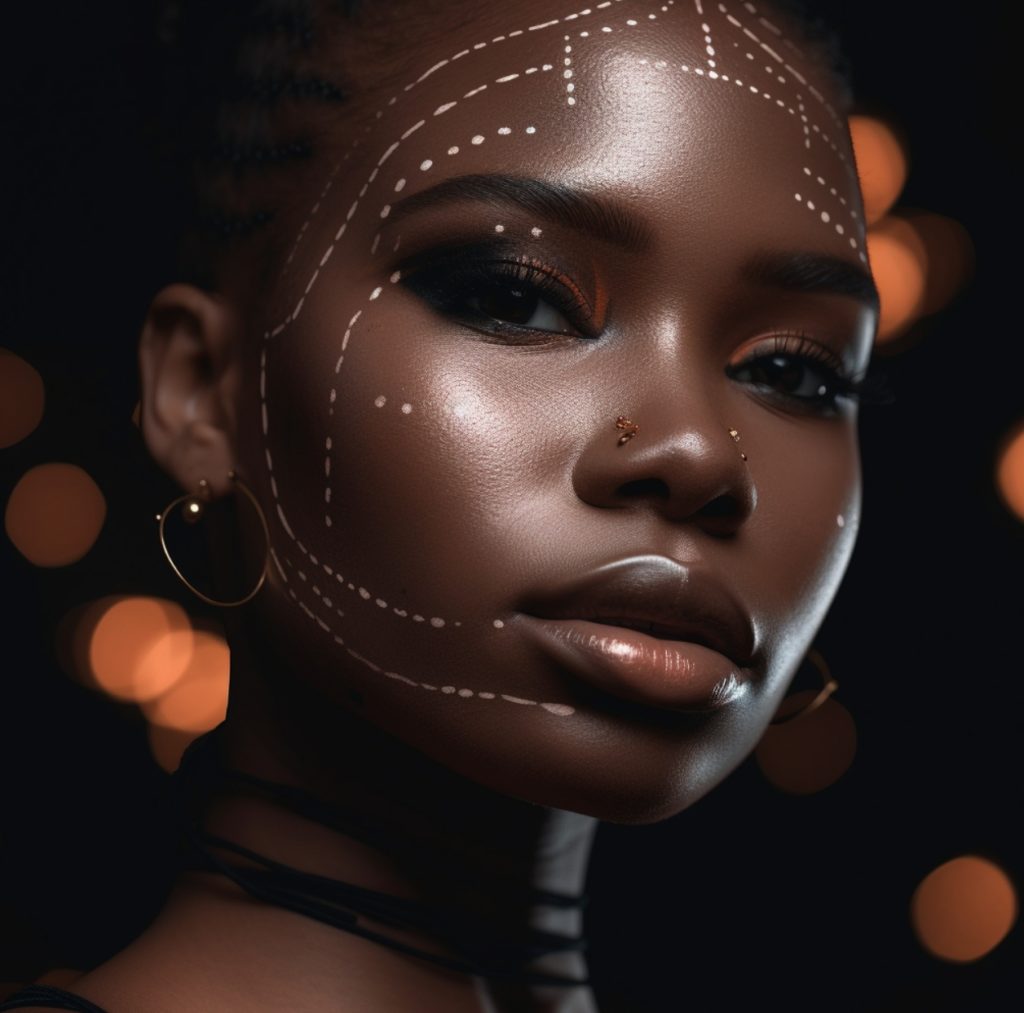
An exfoliating toner is a fantastic addition to any skincare regimen, regardless of your skin type. By gently exfoliating the skin, these toners smooth out rough texture and promote cell renewal for a healthy, vibrant complexion. Key ingredients to look for include alpha-hydroxy acids (AHAs) like glycolic acid and lactic acid, which gently slough away dead skin cells without causing irritation. Use an exfoliating toner a few times a week, gradually increasing the frequency to suit your skin’s tolerance.
Exfoliating Toner:
- Key ingredients: Alpha-hydroxy acids (AHAs)
- Benefits: Gently exfoliates the skin, smooths out rough texture, and promotes cell renewal.
- Expert advice: “An exfoliating toner can help improve skin texture and reduce the appearance of pores. Start with a low concentration of AHAs and gradually increase the frequency to prevent irritation,” says esthetician Shani Darden.
8. Niacinamide Serum: The Multitasking Marvel
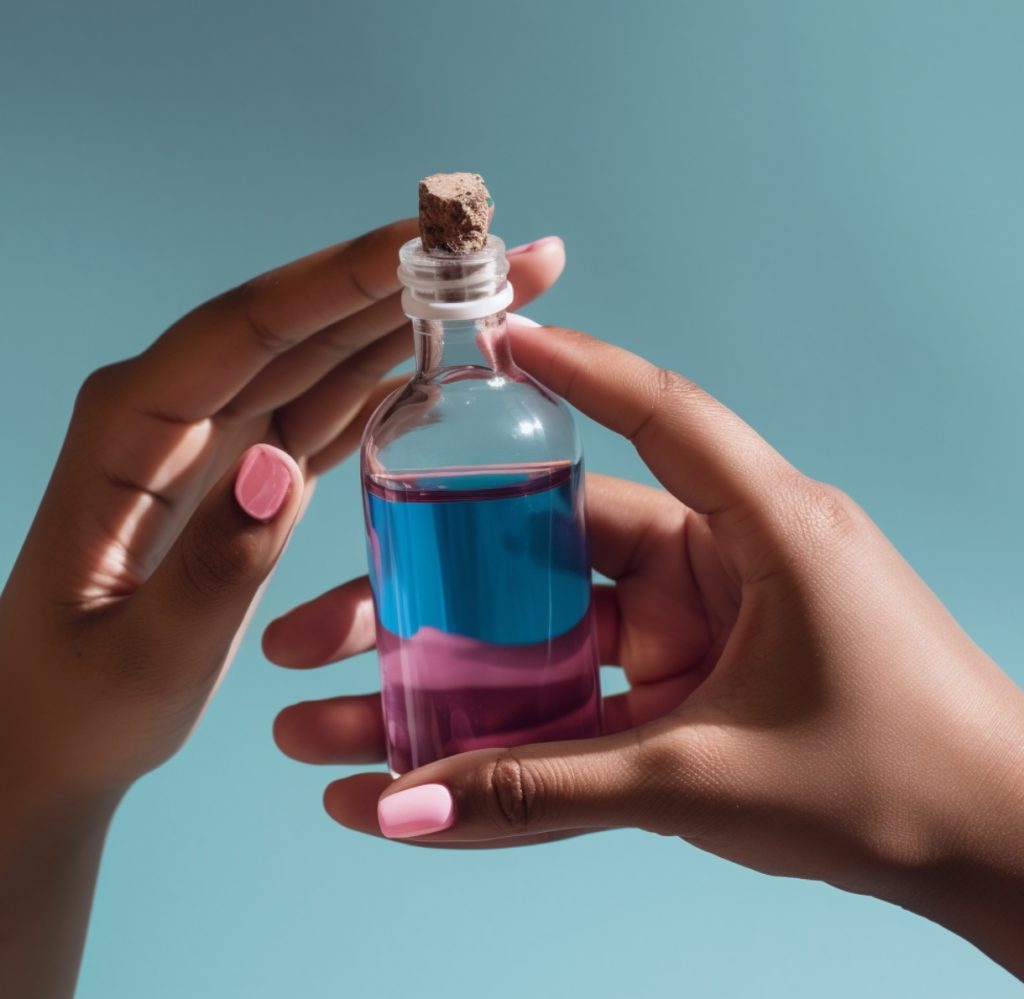
Niacinamide, also known as vitamin B3, is a skincare powerhouse that boasts an array of benefits for every skin type. A niacinamide serum can help balance oil production, minimize the appearance of enlarged pores, and even out skin tone. Many serums also include hyaluronic acid, offering an extra boost of hydration. Incorporate a niacinamide serum into your daily routine, and you’ll soon notice a more balanced, refined complexion.
Niacinamide Serum:
- Key ingredients: Niacinamide, hyaluronic acid
- Benefits: Balances oil production, minimizes the appearance of pores, and evens out skin tone.
- Expert advice: “Niacinamide is a multitasking ingredient that can benefit every skin type. It can help improve skin texture, minimize the appearance of pores, and reduce inflammation,” says esthetician Sofie Pavitt.
9. Moisturizer with Ceramides: Strengthen and Soothe

No skincare routine is complete without a trusty moisturizer, and those containing ceramides are a dermatologist favorite. Ceramides are lipids naturally found in the skin that help maintain the skin’s barrier function, locking in moisture and protecting against environmental aggressors. A good moisturizer with ceramides will also include hydrating ingredients like glycerin and hyaluronic acid, ensuring your skin stays soft, supple, and healthy.
Moisturizer with Ceramides:
- Key ingredients: Ceramides, glycerin, hyaluronic acid
- Benefits: Strengthens the skin’s barrier function, locks in moisture, and protects against environmental aggressors.
- Expert advice: “A moisturizer with ceramides is a great option for anyone with dry or sensitive skin. Ceramides help restore the skin’s natural barrier, preventing moisture loss and improving overall skin health,” says Dr. Joshua Zeichner, a board-certified dermatologist.
10. Peptide Serum: Boost Collagen and Firm Skin

Last but not least, a peptide serum is a fantastic addition to any anti-aging regimen. Peptides are short chains of amino acids that act as building blocks for proteins like collagen, which gives the skin its firmness and elasticity. By incorporating a peptide serum into your routine, you’ll stimulate collagen production, leading to firmer, smoother skin with reduced wrinkles. Look for serums that also include antioxidants and collagen for an extra anti-aging boost.
Peptide Serum:
- Key ingredients: Peptides, antioxidants, collagen
- Benefits: Boosts collagen production, firms the skin, and reduces the appearance of fine lines and wrinkles.
- Expert advice: “Peptides are a great option for anyone looking to improve skin firmness and elasticity. Look for a serum with multiple peptides and antioxidants for maximum anti-aging benefits,” says esthetician and beauty expert Caroline Hirons.
A Comparative Table of Benefits and Skin Type Suitability
| Product | Key Benefits | Skin Type Suitability | Recommended Product |
|---|---|---|---|
| Hydrating Serum | Intense hydration, plumps skin, improves radiance | Dry, Sensitive | Neutrogena Hydro Boost Hydrating Serum |
| Clay Face Mask | Absorbs excess oil, unclogs pores, treats and prevents acne | Oily, Acne-Prone | Aztec Secret Indian Healing Clay |
| Gentle Cleanser | Removes dirt and impurities without stripping natural oils | All Skin Types | CeraVe Hydrating Facial Cleanser |
| Retinol Cream | Reduces fine lines and wrinkles, improves texture and elasticity | Aging, Mature | RoC Retinol Correxion Deep Wrinkle Night Cream |
| Sunscreen | Protects from UVA/UVB rays, prevents premature aging, reduces skin cancer risk | All Skin Types | EltaMD UV Clear Broad-Spectrum SPF 46 |
| Vitamin C Serum | Brightens skin, improves texture, fights free radicals | All Skin Types | SkinCeuticals C E Ferulic Serum |
| Exfoliating Toner | Gently exfoliates, smooths texture, promotes cell renewal | All Skin Types | Paula’s Choice Skin Perfecting 2% BHA Liquid Exfoliant |
| Niacinamide Serum | Balances oil production, minimizes pores, evens skin tone | All Skin Types | The Ordinary Niacinamide 10% + Zinc 1% |
| Moisturizer with Ceramides | Strengthens skin barrier, locks in moisture, protects against environmental aggressors | All Skin Types | CeraVe Moisturizing Cream |
| Peptide Serum | Stimulates collagen production, firms skin, reduces wrinkles | Aging, Mature | Drunk Elephant Protini Polypeptide Cream |
Each of these dermatologist-recommended skincare products has been carefully selected to address specific skin concerns and cater to various skin types.
Essential Equipment for Your Skincare Routine
The right equipment can enhance the application process, maintain hygiene, and improve the overall effectiveness of the products you use. In the table below, we’ve compiled a list of essential equipment that will elevate your experience with the top 10 dermatologist-recommended skincare products for every skin type.

| No. | Equipment | Purpose |
|---|---|---|
| 1 | Facial Cleansing Brush or Cloth | Enhance the effectiveness of your cleanser by gently exfoliating and removing impurities |
| 2 | Cotton Pads or Reusable Cotton Rounds | Apply toner or other liquid products evenly and gently |
| 3 | Jade Roller or Gua Sha Tool | Improve circulation, promote lymphatic drainage, and enhance product absorption |
| 4 | Spatula or Applicator | Hygienically scoop and apply creams, masks, and serums |
| 5 | Facial Steamer | Open pores for a deeper cleanse and enhance the penetration of skincare products |
| 6 | Clean, Dry Towel | Gently pat your skin dry after cleansing or rinsing off a product |
| 7 | Headband or Hair Tie | Keep your hair away from your face while applying products |
| 8 | Bowl and Spoon (for mixing clay masks) | Mix and prepare clay masks for even application |
| 9 | Sheet Mask or Mask Brush (optional) | Apply a sheet mask or evenly distribute a mask using a brush for a mess-free application |
| 10 | Storage Containers or Organizers | Store and organize your skincare products for easy access and to maintain product integrity |
Having the right equipment on hand can make your experience with the top 10 dermatologist-recommended skincare products for every skin type more enjoyable and efficient. These tools can help enhance product application, maintain cleanliness, and promote the overall effectiveness of your skincare routine.
Mastering Your Skincare Routine with Top Dermatologist-Recommended Products
In this guide, we will walk you through step-by-step instructions on how to use the top 10 dermatologist-recommended skincare products for every skin type. By following these steps consistently and adjusting them based on your skin’s needs, you’ll be well on your way to achieving the radiant, glowing complexion you’ve always dreamed of.
Step 1: Cleanse Your Face
- Wet your face with lukewarm water.
- Apply a gentle cleanser using your fingertips or a facial cleansing brush. Massage in circular motions for about 30 seconds.
- Rinse thoroughly with lukewarm water and gently pat dry with a clean towel.
Step 2: Exfoliate with an Exfoliating Toner (2-3 times a week)
- Soak a cotton pad or reusable cotton round with the exfoliating toner.
- Gently swipe the cotton pad over your face, avoiding the eye area.
- Allow the toner to absorb into your skin.
Step 3: Apply a Vitamin C Serum (Morning)
- Dispense a few drops of vitamin C serum onto your fingertips.
- Gently pat the serum onto your face and neck, avoiding the eye area.
- Allow the serum to absorb into your skin.
Step 4: Apply a Niacinamide Serum (Morning or Night)
- Dispense a few drops of niacinamide serum onto your fingertips.
- Gently pat the serum onto your face and neck, avoiding the eye area.
- Allow the serum to absorb into your skin.
Step 5: Apply a Hydrating Serum (For Dry or Sensitive Skin)
- Dispense a few drops of hydrating serum onto your fingertips.
- Gently pat the serum onto your face and neck, avoiding the eye area.
- Allow the serum to absorb into your skin.
Step 6: Apply a Retinol Cream (Night, For Aging or Mature Skin)
- Dispense a pea-sized amount of retinol cream onto your fingertips.
- Gently pat the cream onto your face and neck, avoiding the eye area.
- Allow the cream to absorb into your skin.
*Note: Start with a lower concentration and gradually increase usage as your skin builds tolerance. Always wear sunscreen during the day, as retinol can increase sun sensitivity.
Step 7: Apply a Peptide Serum (For Aging or Mature Skin)
- Dispense a few drops of peptide serum onto your fingertips.
- Gently pat the serum onto your face and neck, avoiding the eye area.
- Allow the serum to absorb into your skin.
Step 8: Moisturize Your Skin
- Scoop a small amount of moisturizer with ceramides using a spatula or applicator.
- Gently massage the moisturizer onto your face and neck using upward and outward motions.
- Allow the moisturizer to absorb into your skin.
Step 9: Apply Sunscreen (Morning)
- Dispense a nickel-sized amount of broad-spectrum sunscreen onto your fingertips.
- Gently apply the sunscreen onto your face and neck, avoiding the eye area.
- Allow the sunscreen to absorb into your skin for at least 15 minutes before sun exposure.
*Note: Reapply sunscreen every two hours or immediately after swimming or sweating.
Optional: Weekly Clay Face Mask (For Oily or Acne-Prone Skin)
- Mix the clay face mask with water or a liquid of your choice according to the package instructions.
- Apply the mask evenly onto your face using a mask brush or your fingertips, avoiding the eye area.
- Allow the mask to dry for 10-15 minutes, then rinse thoroughly with lukewarm water and pat dry with a clean towel
Step 10: Additional Treatments and Tools (Optional)
- Use a jade roller or gua sha tool to massage your face after applying serums or moisturizers. This can help promote circulation, lymphatic drainage, and product absorption.
- Use a facial steamer once a week before applying a clay mask or exfoliating toner to open up pores and enhance the penetration of skincare products.
- If you have specific skin concerns like dark spots, fine lines, or blemishes, consider incorporating targeted treatments like spot treatments or eye creams into your routine.
Step 11: Customize Your Skincare Routine
- Adjust the frequency of exfoliation, masks, and retinol usage based on your skin’s tolerance and needs.
- Listen to your skin and modify your routine accordingly. If your skin feels irritated or overly dry, consider reducing the frequency of certain treatments or switching to gentler products.
- Don’t be afraid to experiment with different products and combinations to find the perfect skincare routine that works for you.
Step 12: Consistency is Key
- Stick to your skincare routine consistently, both morning and night. Skincare is a long-term commitment, and consistency is crucial for achieving optimal results.
- Pay attention to how your skin reacts to products and treatments over time, and adjust your routine as needed.
- Be patient! It may take a few weeks or even months to see noticeable improvements in your skin. Keep up with your routine and trust the process.
FAQs
How do I determine my skin type?
To determine your skin type, observe your skin’s natural tendencies without any products applied. Skin types are typically classified as normal, oily, dry, combination, or sensitive. You can also consult with a dermatologist to better understand your skin type and any specific concerns you may have.
Can I use all these products together in my skincare routine?
Yes, the products mentioned can be incorporated into a comprehensive skincare routine. However, it’s essential to consider your skin type and specific concerns when selecting products. Always introduce new products one at a time and monitor your skin’s reaction to ensure compatibility.
How long does it take to see results from using these products?
Results may vary depending on your skin type, concerns, and the products you are using. Generally, it can take anywhere from a few weeks to a few months to see noticeable improvements. Consistency is key, so stick to your routine and be patient.
How often should I change my skincare products?
There is no fixed rule for changing skincare products. It depends on your skin’s needs and how it reacts to the products. If a product is working well for you, there’s no need to change it. However, if you notice that a product is no longer effective or causing irritation, consider switching to a more suitable alternative.
Can I use these products if I have sensitive skin?
Many dermatologist-recommended products are formulated for sensitive skin. However, it’s essential to carefully read the labels and look for hypoallergenic, fragrance-free, and gentle formulations. Always patch test a new product on a small area of skin to check for any adverse reactions before incorporating it into your routine.
How do I know if a product is dermatologist-recommended?
Look for products that have been tested and approved by dermatologists, as they often carry a label or certification stating that they are “dermatologist-recommended” or “dermatologist-tested.” Additionally, research and seek recommendations from reputable sources, such as professional skincare blogs, dermatology websites, and peer-reviewed journals.
Do I need to use all the top 10 products for optimal results?
Not necessarily. Your skincare routine should be customized to your skin type and specific concerns. You may not need to use all the top 10 products, but selecting a combination that best addresses your needs will help you achieve the desired results. Consult with a dermatologist for personalized advice on which products to include in your routine.
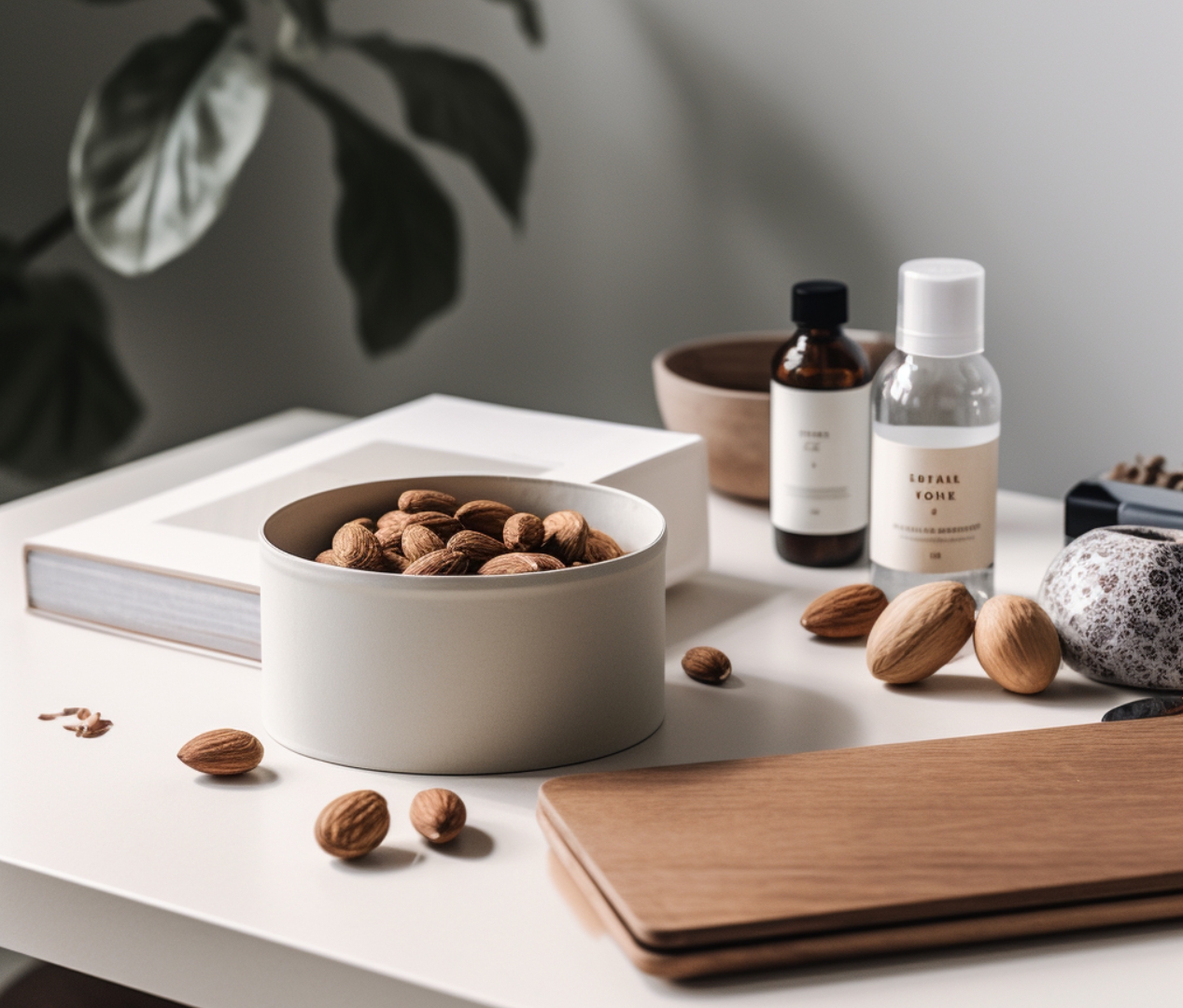

Leave a Reply